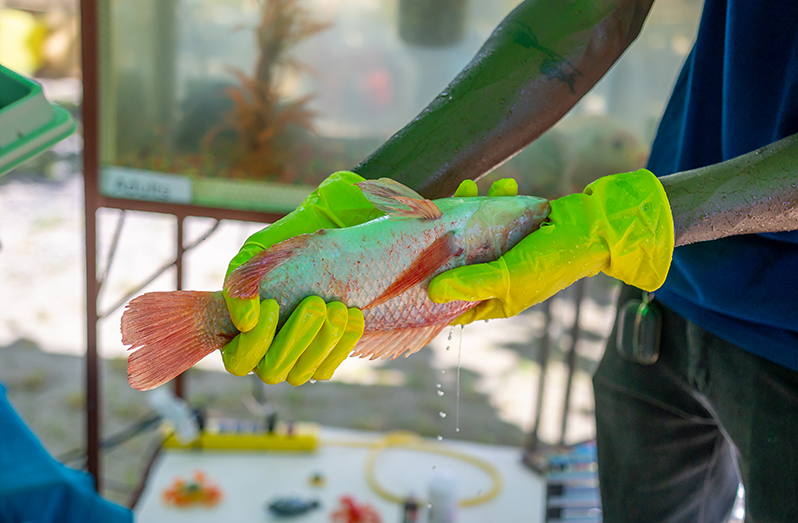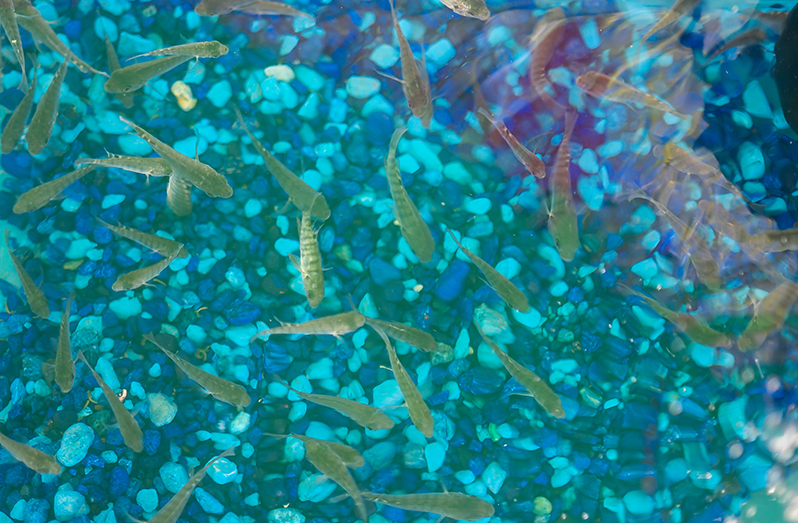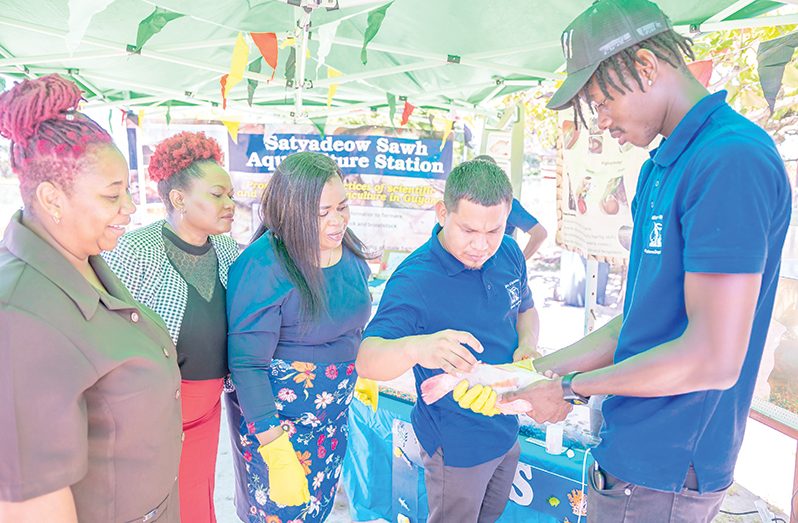– Education, Agriculture ministries collaborate
TO make sure that each child leaves school fully equipped with the knowledge and practical skill sets for the world of work, the Ministry of Education and the Ministry of Agriculture’s Fisheries Department have initiated a two-day practical training programme for teachers on Tilapia and Aquaculture at the Satyadeow Sawh Aquaculture Station in Mon Repos, East Coast Demerara.
The Assistant Chief Education Officer within the Ministry of Education, with the responsibility of the Technical and Vocational Education and Training (TVET) Unit, Ms. Marcia Andrews (Ms. Paddy), told Guyana Chronicle that the training session is the first of its kind to be held in Guyana.

According to her, “We have introduced a programme called the Caribbean Vocational Qualification (CVQ), and we have so far introduced 19 occupational areas in the school system, and for the first time we are going into the aquaculture field.”
She continued: “We have embarked on training our teachers so that they can deliver this programme effectively to each student. Since we do not have the relevant trained personnel within the Ministry, we have sought to collaborate for the first time officially with the Ministry of Agriculture, and we are very grateful to them.”
While this is their first collaboration, it is not the first time the two ministries have worked together.
Ms. Andrews explained that the Ministry of Agriculture has been supporting the educational programmes in the hinterland areas as well.
She related that although they may not have worked on a “wide scale level,” they have been supporting the crop production programmes within the region to provide materials, technical support, and much more.
Ms. Andrews further stated that the aquaculture programme and the training sessions of the teachers will enable the Education Ministry to share the knowledge gained with all 116 secondary schools across Guyana.

She explained, “What we have been doing is the traditional rearing and selling of fish, but what we want to capture with this programme is to ensure that students can venture out into the exportation of fish to other countries. We know that we have a wide variety of fish that is in demand, but we have very few people in this field, so we want to change that by providing them with these opportunities.”
With the onset of oil and the expansion of all the industries across the country, Ms. Andrews added that the Ministry of Education recognised that students need skills training, and that is one of the main reasons why they have implemented the CVQ.
According to her, “CVQ is a competency-based programme; the students are not required to write any theoretical exams at the end, but they are required to acquire competency, skills, and attitudes. I am not putting the Caribbean Examination Council (CXC) down because it is very valuable, but when our student writes the CSEC, they have the theoretical knowledge and some aspects of practical, but by completely completing the CVQ, it means that they have the skills.”

Finally, Ms. Andrews added that even though students may have their CXC qualifications to enter the workplace, many times the industries have to train them so that they can function better in their work capacity.
She also noted that they can proceed to any higher institution, whether level two, three, or upwards. “With this, they can also travel anywhere in the Caribbean and complete their studies, return to Guyana, and be employed. CVQ is also big on occupational safety and health, and all our students will be trained to handle that aspect in the workplace as well. Skill training is what is in demand now,” said Ms. Andrews.
The Guyana Chronicle also spoke with several teachers during the training session, and they were all in agreement that the session had enhanced their knowledge.
One teacher noted, “We learned so much about these fish that we hadn’t known, but we are also in a better position to teach our children in a practical way, and we are sure that they will be captivated as we were.”



.jpg)









